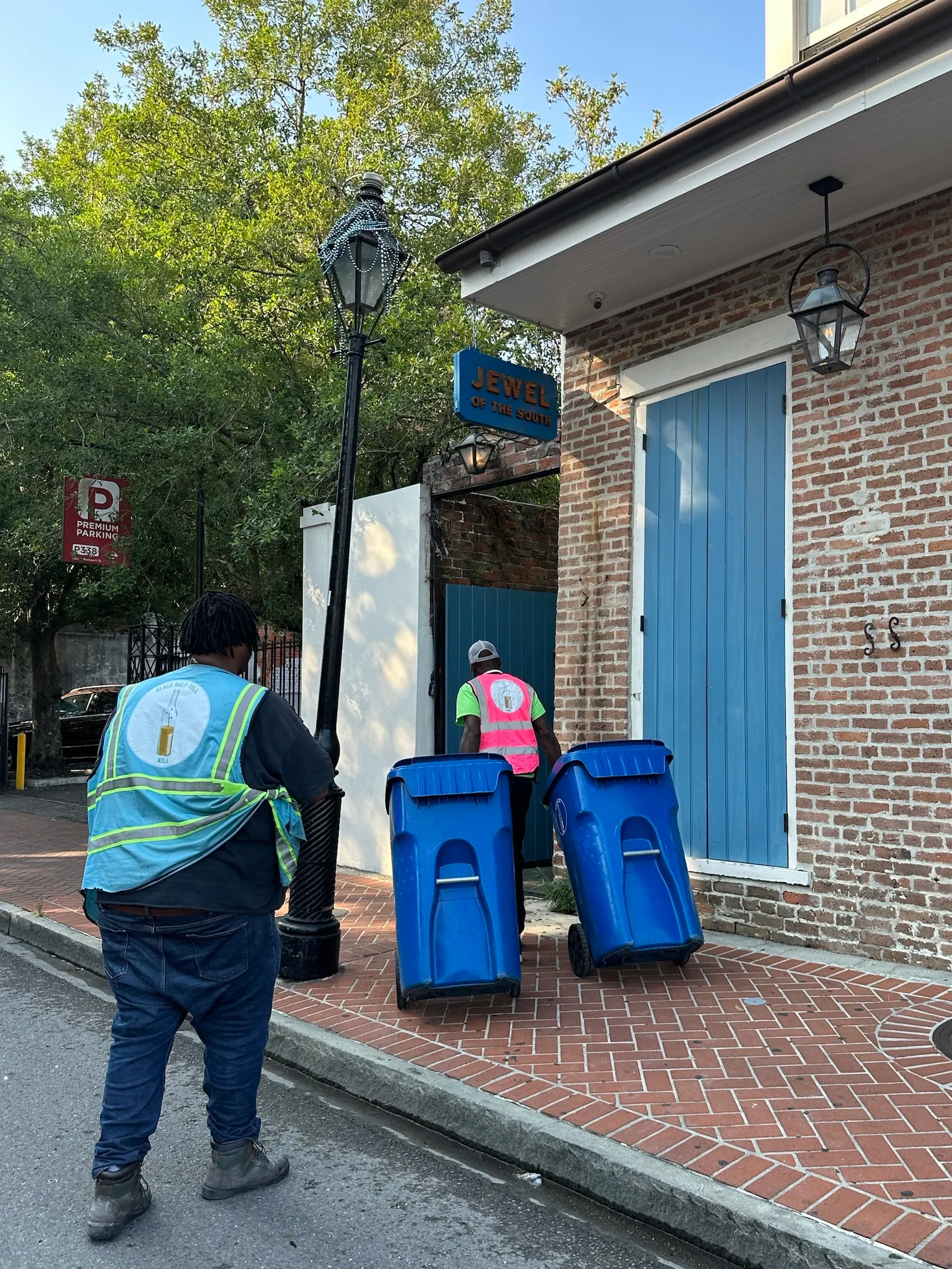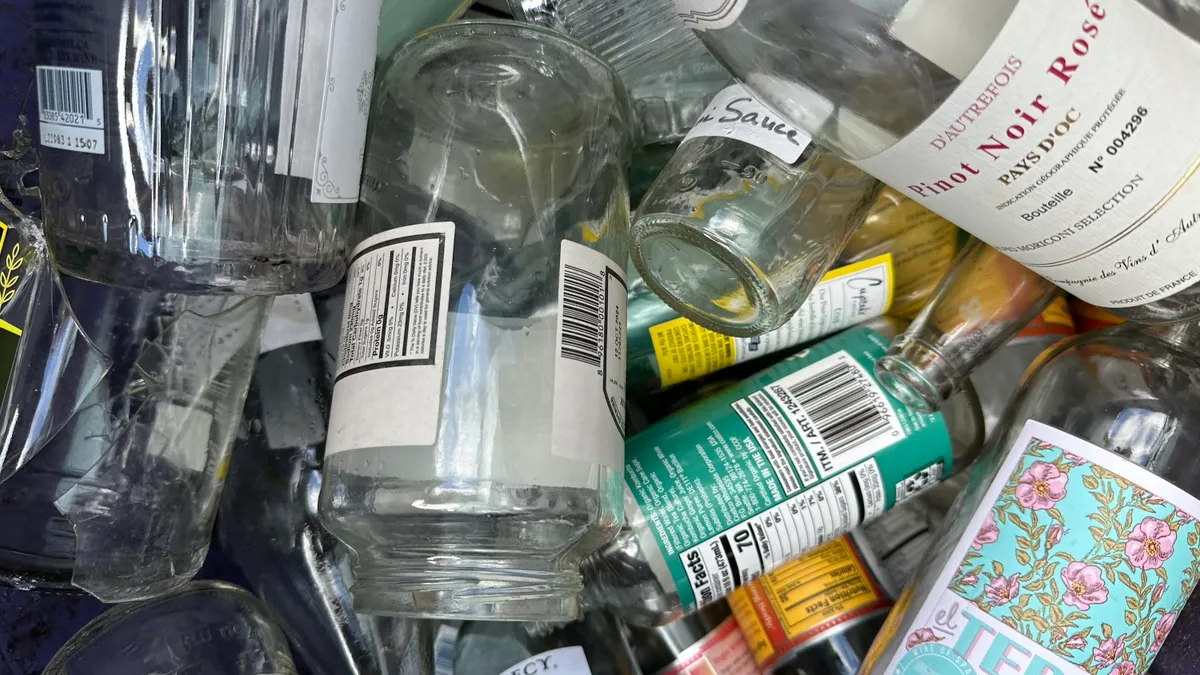Dive Brief:
- Expansion plans for Louisiana-based recycler Glass Half Full are in full swing after a recent infusion of funding, the groundbreaking of a new facility and the launch of a new pilot program offering mixed recycling pickup services.
- The glass recycler recently announced a $6.5 million funding round led by Benson Capital Partners and supported by Momentum Fund, Innovation Catalyst and other investors.
- The funding will boost construction plans for a new facility, located on a three-acre former landfill site in Chalmette, Louisiana. The facility will have a capacity to handle 300,000 pounds of glass a day, most of which will go to coastal restoration projects and cullet production.
Dive Insight:
Glass Half Full’s expansion plans aim to boost glass recycling in a region where such services are hard to come by, even as demand has increased over the last few years. The company also aims to expand during a time when major glass recyclers in the U.S. have faced business setbacks and curbside programs drop glass from their programs.
“We've always been focused on the Southeast, just because of the lack of available glass recycling options in the area,” said co-founder Franziska Trautmann.
Glass Half Full started in 2020 when Trautmann and co-founder Max Steitz, then students at Tulane University, were looking for a way to keep glass out of the landfill. The company has since grown to offer subscription pickup services for glass, as well as free drop-off locations.
Glass Half Full has since processed over seven million pounds of glass, which the company repurposes into sand for coastal restoration projects and some color-sorted glass for countertops and other applications.
The company has outgrown its current 40,000 square foot warehouse. The new building will include optical sorters and other equipment to help sort higher volumes of material.
“We've always had more demand for glass than we've been able to process. It’s been a constant struggle,” Trautmann said. “The overarching goal of this plant is eliminating that problem.”
New equipment will also make it possible to sort for size, meaning Glass Half Full can produce cullet for the first time, she said.
Trautmann also welcomes a new problem: how to get more glass to fill the new plant.

The company’s main source of revenue comes from its subscription collection services, including residential routes as well as commercial routes that pick up glass from hotels, bars and casinos in areas like the tourist hotspots in New Orleans. “A weekend on Bourbon Street [generates] just an astronomical amount of glass,” she said.
Glass Half Full has recently expanded its collection footprint into new areas, including certain regions in Mississippi and Birmingham, Alabama.
Another new venture for the company is a pilot program in Jefferson Parish, a neighboring parish of New Orleans. Municipal recycling services had recently ended in that region, and Glass Half Full stepped in to offer its subscription glass recycling pickups alongside a single stream recycling collection offering — a new service for the glass-focused company.
That mixed recycling pickup pilot has been going on for about five months, and Trautmann said the company is still getting the hang of separating the recyclables and sending them to a nearby MRF. Trautmann sees opportunities for expansion, but is waiting to see how the program progresses before making a more intentional move into broader recycling services. Increased interest from subscription customers could drive growth in that area, she said.
“The more we got into the recycling industry, the more we realized there's a need for a lot more than just glass recycling,” she said. “But mixed recycling is such a different beast than glass, and the complexity of logistics and sorting is different, too.”
Though expansion plans are at the forefront of Glass Half Full’s planning at the moment, Trautmann said the strong relationships the company has built with local partners are a major priority.
Coastal restoration projects are a critical part of Glass Half Full’s business, partly because the bulk of the glass the company processes ends up along nearby coastlines. The company has recently worked on several restoration projects in Louisiana alongside The Coalition to Restore Coastal Louisiana and the Pointe-au-Chien Indian Tribe.
Glass Half Full worked with Tulane on a study researching environmental impacts of recycled glass sand. The company produces sand for coastal projects based on scientists’ assessment of what sediment type, color and grain size is needed, she said.
Glass Half Full’s dedication to coastal restoration, along with its focus on the local community, aligned well with Benson Capital’s focus on projects that create green jobs, said founder Gayle Benson. “We are excited to propel access to glass recycling for the entire Gulf South region,” she said in a statement.
Glass Half Full also receives both financial and in-kind support from the Meraux Foundation, a nonprofit that supports business development in St. Bernard Parish. Glass Half Full won $100,000 during the foundation’s annual startup competition in 2021, and the foundation also provided the land for the company’s expansion.
The foundation also recently donated about $3.7 million for glass recycling projects in the parish, including Glassroots, one of Glass Half Full’s partner organizations that focuses on recycling education and outreach. The funding and support is meant to help create new jobs and generate tax revenue for the parish, but also “reinforce our parish's reputation as a hub for coastal restoration solutions,” said President Rita Gue in the announcement.
Glass Half Full is also working on a land restoration project on the site of its new facility, which will use a combination of recycled glass sand and sediment from the Mississippi River. “It’s a former landfill, and being able to turn that into a recycling facility is a cool and beautiful story,” Trautmann said.
This story first appeared in the Waste Dive: Recycling newsletter. Sign up for the weekly emails here.















